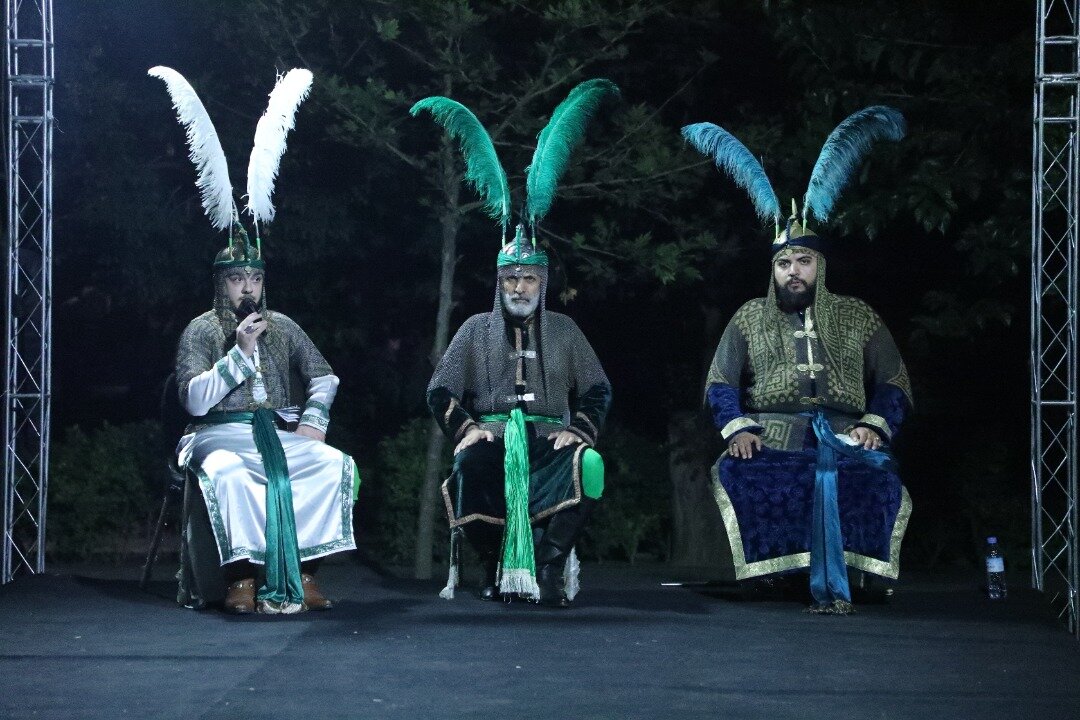INSUBCONTINENT EXCLUSIVE:
days of the lunar month of Muharram.During the Muharram rituals, millions of Muslims commemorate the martyrdom anniversary of Imam Hussein
(AS), the grandson of Prophet Muhammad (S).The Seyyed ush-Shohada Tazieh Group directed by Ahmad Azizi will begin their performances every
martyrdom of Hazrat Ahmad ibn Musa (AS) who, along with his brothers, including Seyyed Alaeddin Hossein (AS), embarks on a journey to visit
their brother, Imam Reza (AS), in the Khorasan region.However, Fars ruler Qotlogh Khan is assigned by Abbasid caliph Mamun the task of
messenger of Imam Hussein (AS), to Kufa a few days before the Ashura uprising that led to the martyrdom of the Imam and his companions in
which has been organized by the Rudaki Foundation.The tazieh troupe is composed of Masud Azizi, Milad Azizi, Amir Abbas Baqeri, Habib
Maheri, Javad Judi, Amirali Rezai, Ebrahim Khodabandeh, Mahyar Mirnaqi, Hossein Hossein-Ali, Amir Ali Kaveh, Amir Ali Rezai and Parsa
Hossein-Ali.The Iranian passion play tazieh was registered on the UNESCO List of the Intangible Cultural Heritage of Humanity in November
2010.Tazieh represents religious events, historical and mythical stories and folk tales
Each performance has the four components of poetry, music, song and motion.However, stories about the uprising of Imam Hussein (AS) and his
companions against the oppressive Umayyad dynasty in 680 CE are more highly regarded by tazieh troupes and audiences.Performers are always
male, and female roles are played by men, most of whom are amateurs who gain their living through other means but perform for spiritual
rewards.It is a kind of drama that depicts the event of Ashura and is performed in Mahur, Chargah, and Shur Baghdad radifs of Iranian
music.It is based on the Ashura culture and the brave war and martyrdom of Imam Hussein (AS)
It is a religious play dated back to 9th-century dynamites and Buyids
However, Tazieh performance began during the Safavid era (1501-1736) and flourished during the Qajar era.ABU/

